The factory was rebranded Bayerische Motoren Werke and retooled to produce portable and highly-adaptable flat twin-cylinder motors for various industrial, agricultural, and household applications, and while the freshly-minted BMW marque found many uses for these wonderful little power plants, one combination was particularly inspired: Mating them to a Helios motorcycle frame.
This potent pairing represented the advent of a formal Motorrad division for BMW. Now nearing their centennial anniversary, BMW motorcycles are legendary among generations of loyal owners, enthusiast/riders groups, and niche technicians. The bikes themselves have always been defined by the robust engineering and stylish aesthetic that underpins most German industrial designs, and these bikes have also always displayed subtle evidence of the marque’s aerospace engineering past in their designs. Between their remarkable design language and the unique riding experience they provide, BMW’s bikes have a tendency to inspire a deep obsession in their owners – and one such obsessive is South Florida’s Jesse Scott Baumann.
Baumann is a vintage motorcycle mechanic that has wrenched on a remarkable number of old bikes for a 31 year old. Baumann – who owns Hex Moto in Boynton Beach, Florida – has an intimate understanding of all the classic brands as the sheer diversity of vintage motorcycle design puts motorcycle mechanics in the unenviable position of having to balance being both a specialist in every brand they wrench on and having the versatility to accommodate a wide range of manufacturers. And while working on a wide range of bikes is what now keeps the lights on at Hex Moto, Baumann’s true passion (and the point of origin for his shop) is vintage BMW. Baumann explains how he got the BMW bug:
“After completing a later-year BMW R100 custom build, I began actively pursuing a bike from the /2 era. At the time, I was selling a very clean Kawasaki H1 two-stroke and in the listing I made it clear that I would only accept a trade offer for a pre-1970 BMW.”
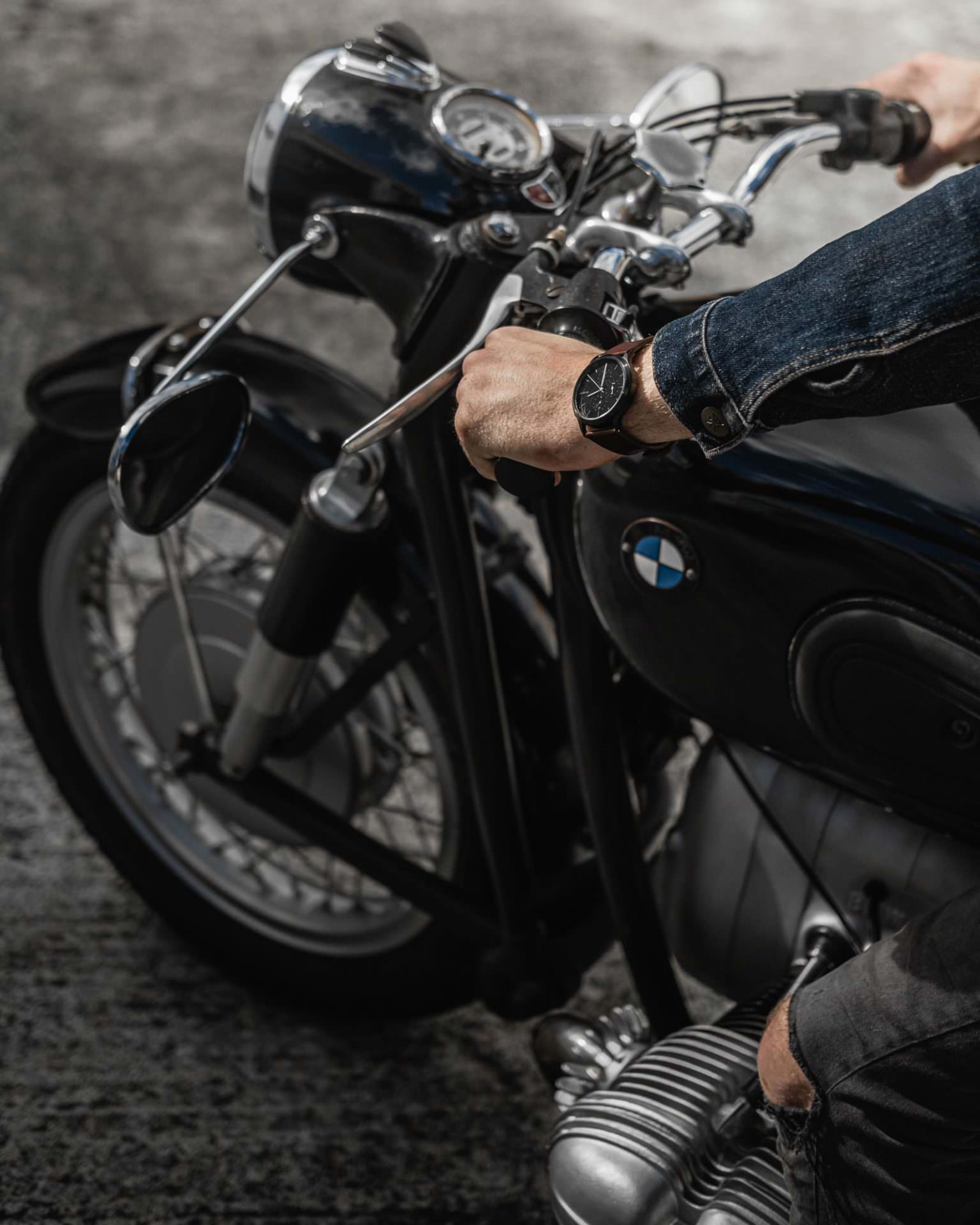
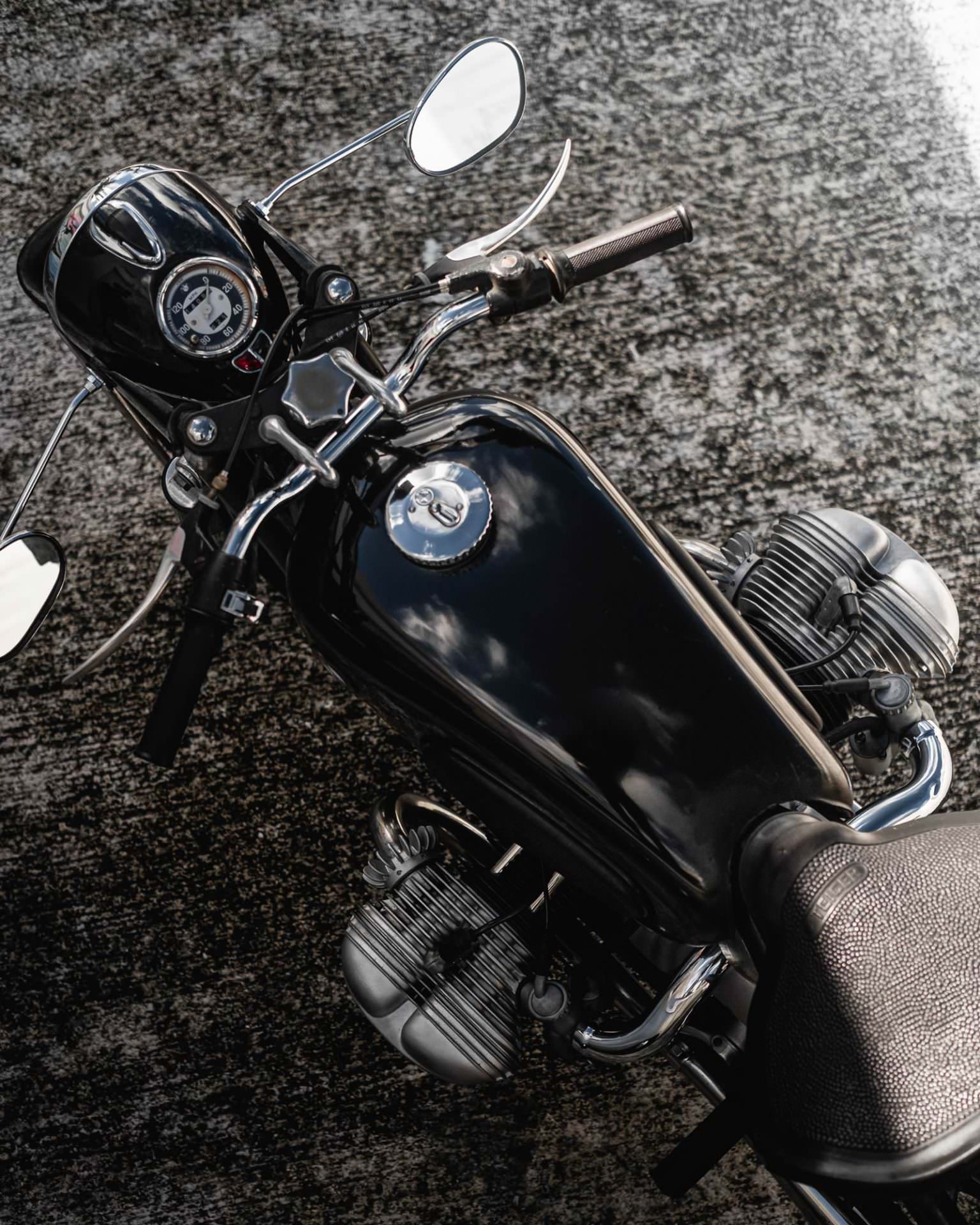
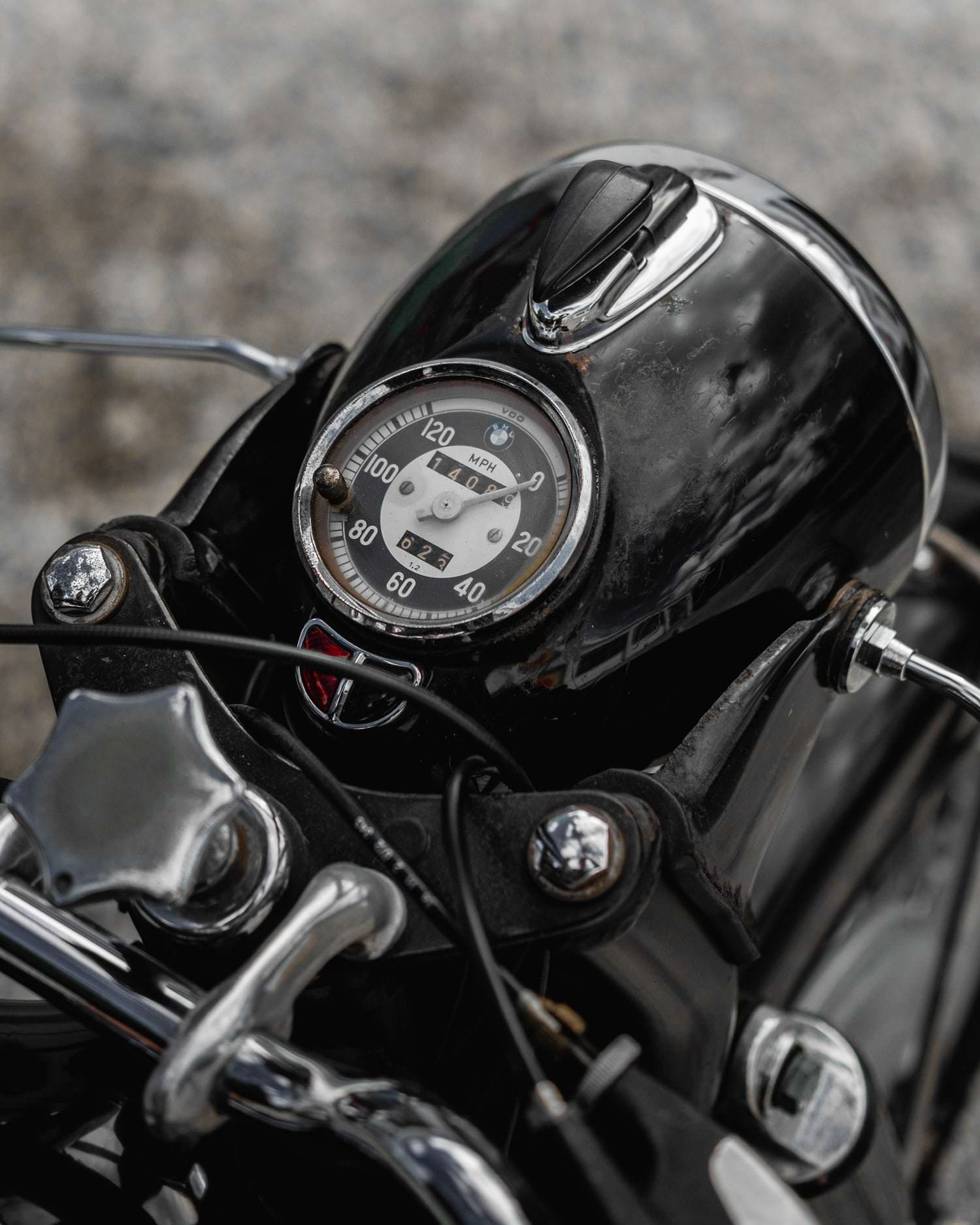
In the years following World War II, BMW honed (and perfected, in the eyes of many) their motorcycle platform. These bikes were designated /2 for second generation and they boasted major improvements like triangular “plunger” frames, which brilliantly married ergonomic design with structural performance, a front-leading Earles fork, which used a novel design to convert forward momentum into upward motion (preventing the bike’s handlebars from losing stability and diving under heavy braking), and engine cases that featured aerodynamically functional designs and provided easy access to accommodate roadside repairs. Additionally, the gear boxes found on the /2 era of BMW bikes were designed to handle the added weight of a sidecar and had a tractor-like resilience. A single instrument gauge, designed for both day and night legibility akin to a Bauhaus pilot’s watch, was discretely nestled within the headlamp bucket. These bikes were rideable, resilient, and a visual knockout, and they fully captivated Baumann.
One evening, the young mechanic received a call responding to his Kawasaki listing. The caller told Baumann “I think I have what you’re looking for…but it’s in pieces.”
The caller revealed that exactly an hour’s drive north of his shop, a 1963 BMW R69S – an especially coveted and rare model – lay disassembled, unlisted from any online markets, and waiting in the shadows to be reborn. Was it a true barn find – not quite. But it was damn close!
Baumann explains “Of course I was aware of the R69S model; it was designed to be a high-compression, high-performance ‘sport’ variant of the R60/2. It’s just such a rare bike that I never imagined I’d have the chance to own one!”
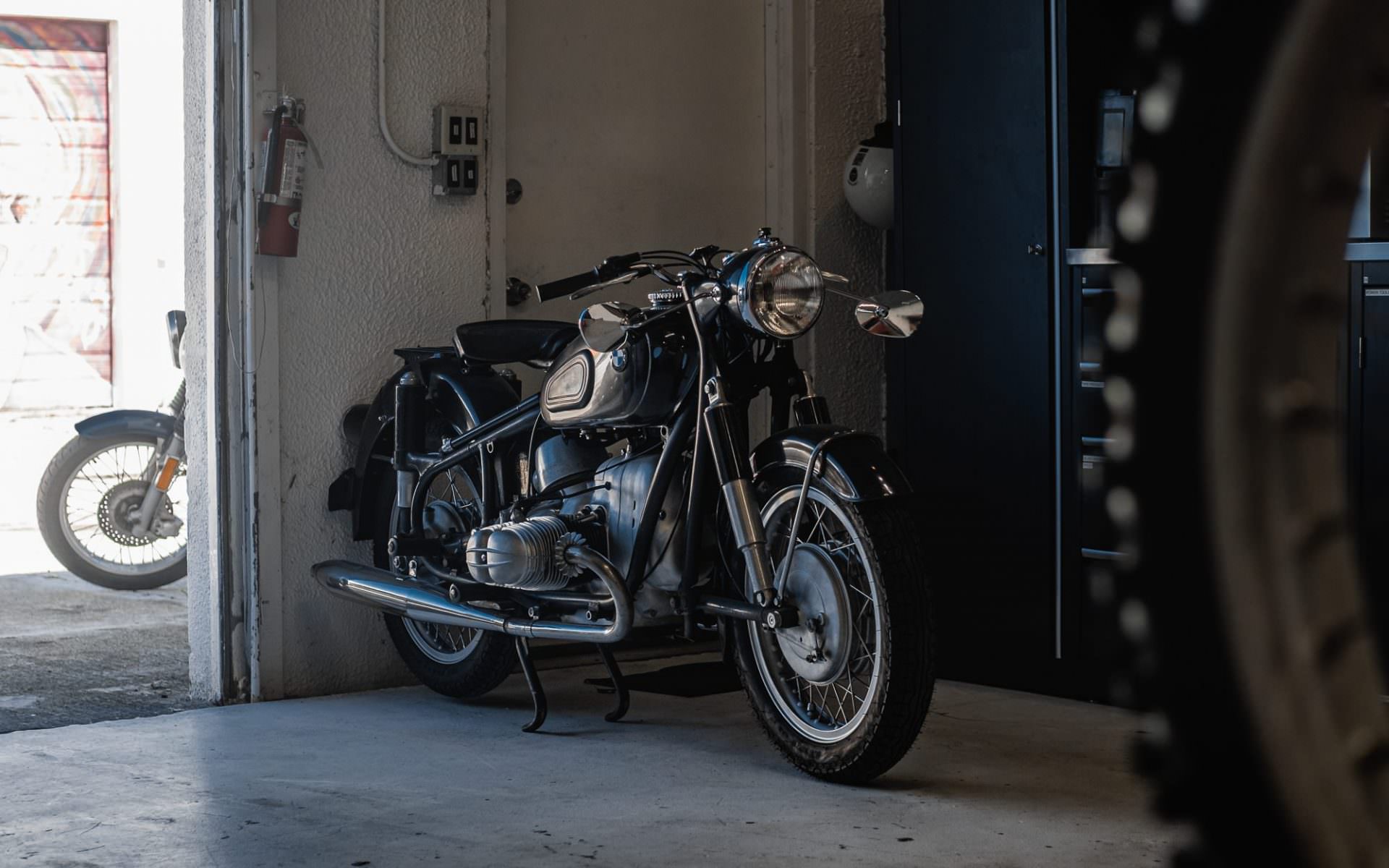
Baumann arrived at the owner’s house with his clean Kawasaki trade in tow and immediately confirmed that his listing had netted him an impossibly rare R69S. The bike was fully disassembled, but it was all there! The frame was tucked away beneath a workbench with both wheels propped up against it, the motor was in a plastic bin, and the fuel tank laid in a cardboard box a few feet away – but it was all in the same room.
“I went to work on the reassembly right then and there in the owner’s garage!” Baumann says of the night he found his German unicorn, continuing “I needed it to at least be in rolling condition for me to get it into the truck bed and back home. And part of me wanted to confirm that the restoration project was even possible.”
The BMW went back together with reasonable ease considering the state Baumann found it in and he drove off that night with the rolling chassis in his truck’s bed and a clutch of parts containers. In the following weeks, the bike would undergo a proper reassembly. True to the reputation of BMW’s resilient /2 period motors, the R69S’ power plant actually fired up without much of a fight and Baumann soon recruited the nearly 60-year-old motorcycle as his daily commuter.
“I couldn’t believe how fast the bike was, and incredibly smooth. I wanted to take it everywhere. But the more frequently I rode it, the more I received caution from the old timers in the bike world I know.”
One pitfall of the pre-1970 engine configuration is the lack of an external oil filter. Instead, a system of “oil slingers” trap sediment and contaminants indefinitely. Without a full scale motor disassembly and cleaning, the sludge simply amasses and eventually blocks the oil passage – seizing the motor.
Baumann knew his new daily driver was a sludge-laden time bomb and says “The more I rode it, the more my anxiety grew. I had no idea what the true condition of the bottom-end was, and every time I ran the bike, I felt like I was tempting fate.”


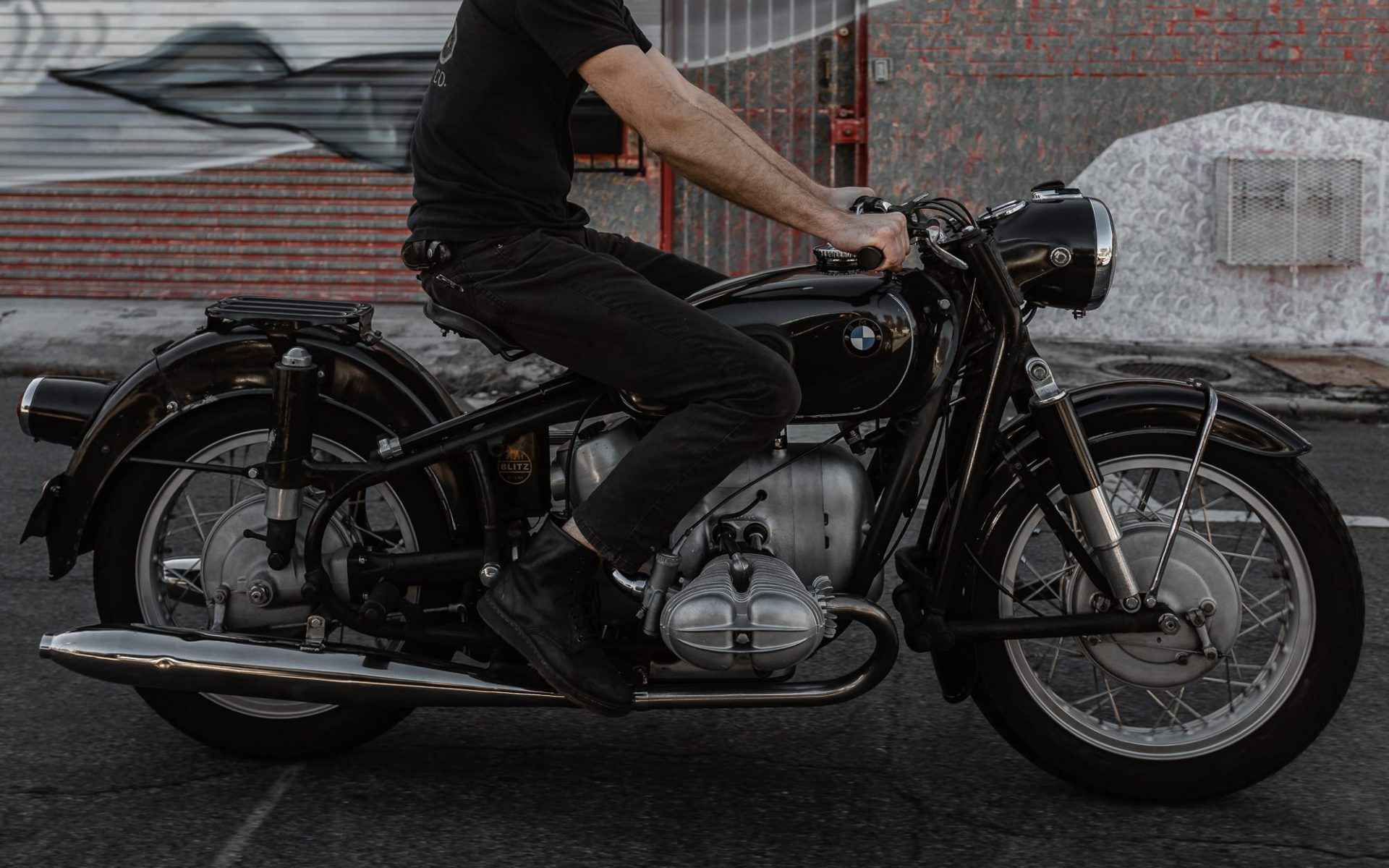
Despite the machine’s rarity and value in its survivor form, Baumann committed to a full mechanical restoration, a massively time consuming and risky job, even for a full-time technician, but particularly so for someone that had never attempted to do one on an R69S. The engine and gearbox were disassembled, meticulously cleaned, and rebuilt. And while even the simple jobs involved in a full engine rebuild are time consuming, things like reinstalling the crankshaft is a tedious process that involves freezing the crank while baking the engine case in an oven in order to expand the alloy and maximize clearances. It’s the only way these components will reassemble correctly and the different temperatures required to make it work creates a race against time as the parts warm and cool. Despite the full mechanical rebuild, Baumann chose to honor the motorcycle’s age and the character of its patina and left the factory-original paint untouched.
Completion of such a deep mechanical restoration on a model considered a proper grail by BMW enthusiasts provided Baumann with more than just a new lease on life for his favorite bike: It was a massive confidence boost for the young mechanic, who had not previously had the opportunity to do such intimate and invasive work on such rare bike and was still working out of another local shop at the time.
“I shed a lot of fear. A couple of months later I was able to replicate what I had learned on an even older BMW – a 1952 R51/3 – and find some places to improve my methods.”
The demand for Baumann’s technical abilities has begun to grow, largely thanks to locals hearing about the job he did on his R69S and the R51/3 and seeing him rip around town on his dreamy daily. The demand for Baumann’s abilities after successfully completing two major BMW rebuilds are actually what gave Baumann the confidence (and reputation) to leave the shop he had been at and open up Hex Moto, and less than a year after the completion of the /2 project, Baumann and Hex Moto are stacked with new projects and fast becoming one of the busiest vintage bike repair and restoration shops in the region. Baumann is always ready for more and is especially hungry to tackle the next BMW project – “oil slingers” be damned!
For more information about Jesse and his motorcycle restorations check out his personal instagram and shop.

Check out 'Reference Tracks' our Spotify playlist. We’ll take you through what’s been spinning on the black circle at the C + T offices.

Never miss a watch. Get push notifications for new items and content as well as exclusive access to app only product launches.
Sign up for our newsletter to receive updates and exclusive offers